Our Library
Explore our publications, from research papers and series to educational materials, covering all aspects of conflict transformation and peace promotion.
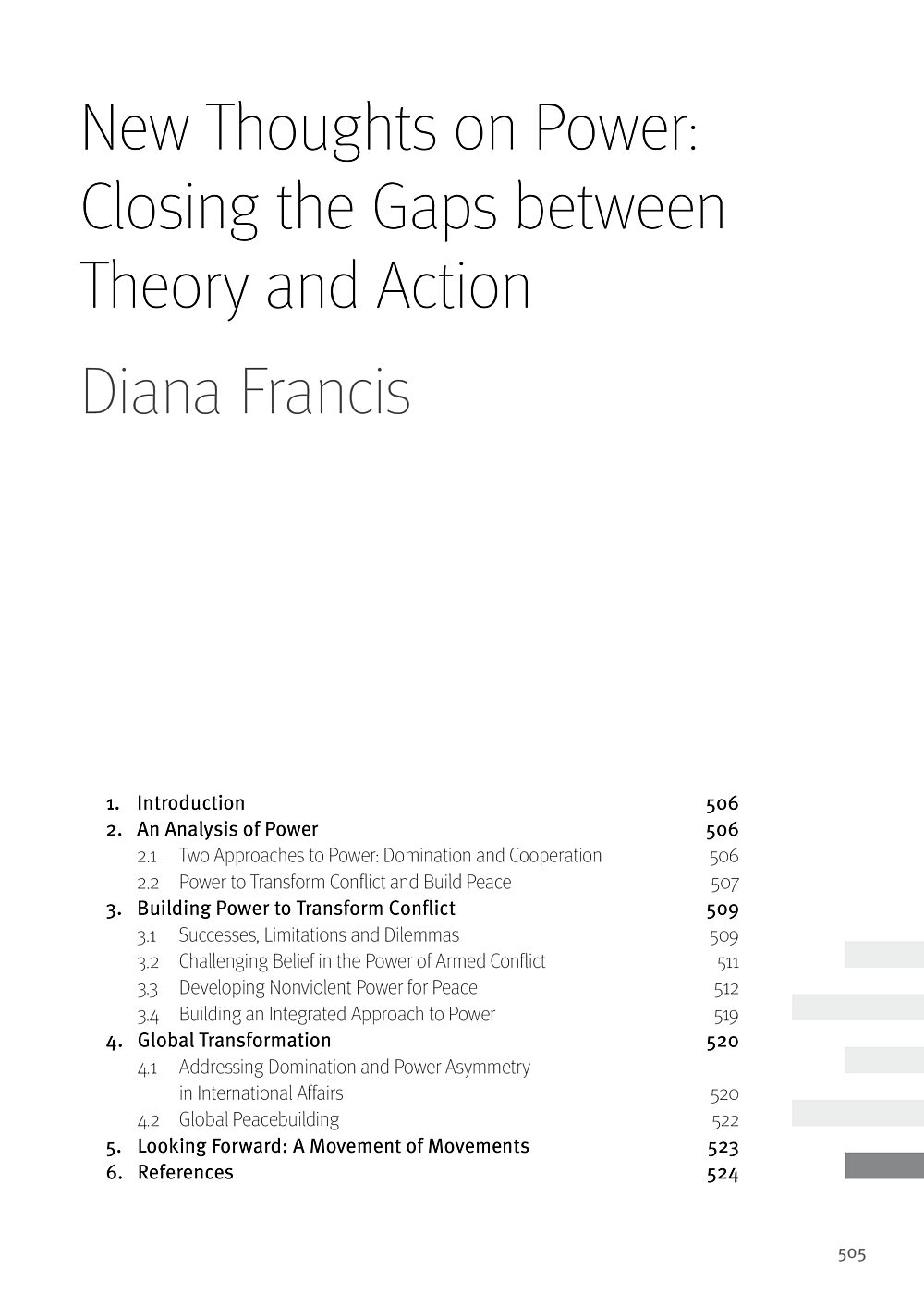
New Thoughts on Power: Closing the Gap between Theory and ActionHandbook Article
Contrasts two familiar models of power: domination and cooperation. Arguing that the dominant concept of “power over” has given rise to a damaging global culture of militarism which blurs the line between pacification and peace, the author sketches a thought-provoking vision of how choosing instead to pursue “power with” could bring about a major paradigm shift. Drawing on real-life examples, she champions nonviolent assertiveness and asks: how much could “people power” achieve if it were taken as seriously as war now is?
- Year2011
- Author(s)Diana Francis
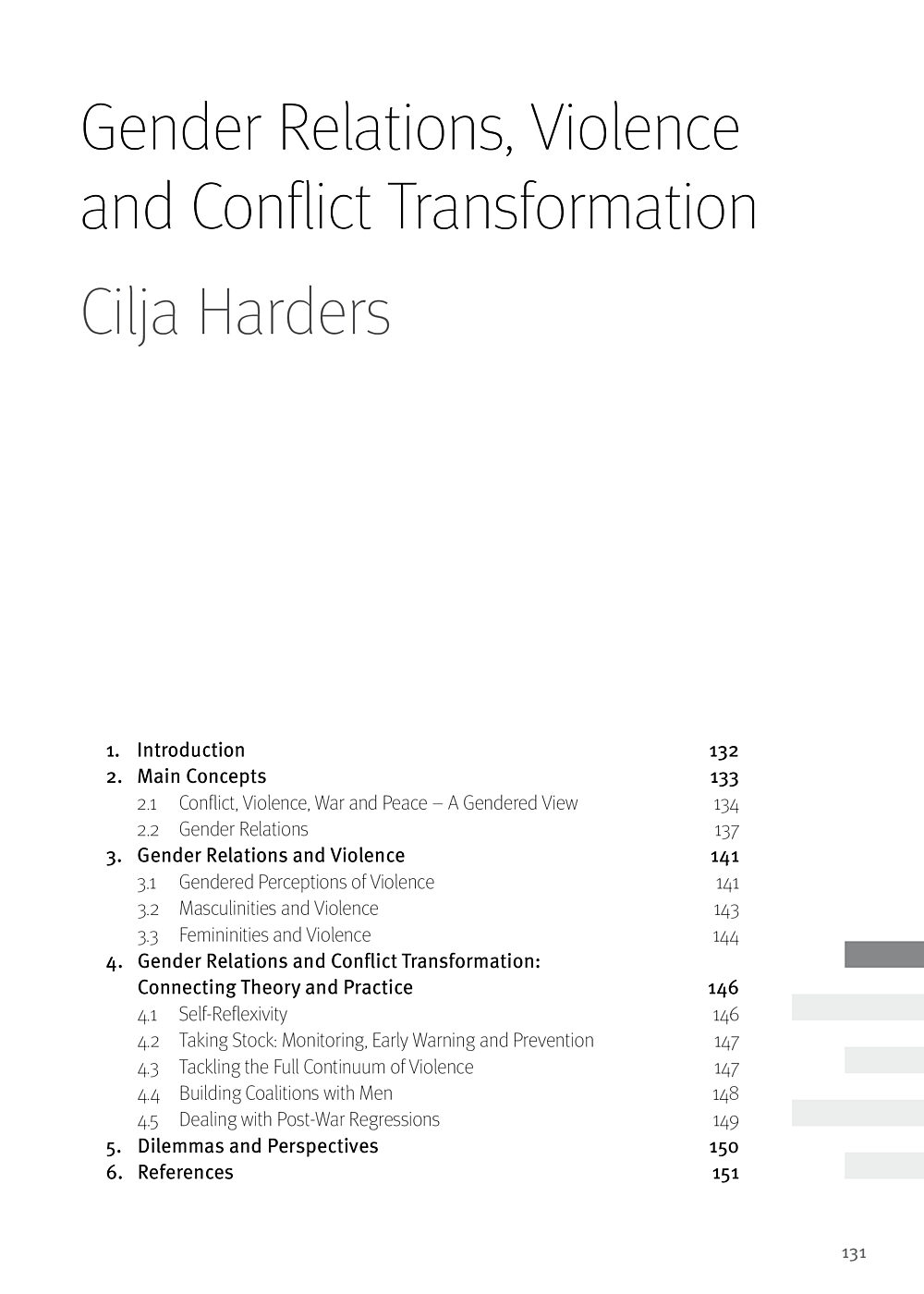
Gender Relations, Violence and Conflict TransformationHandbook Article
- Year2011
- Author(s)Cilja Harders
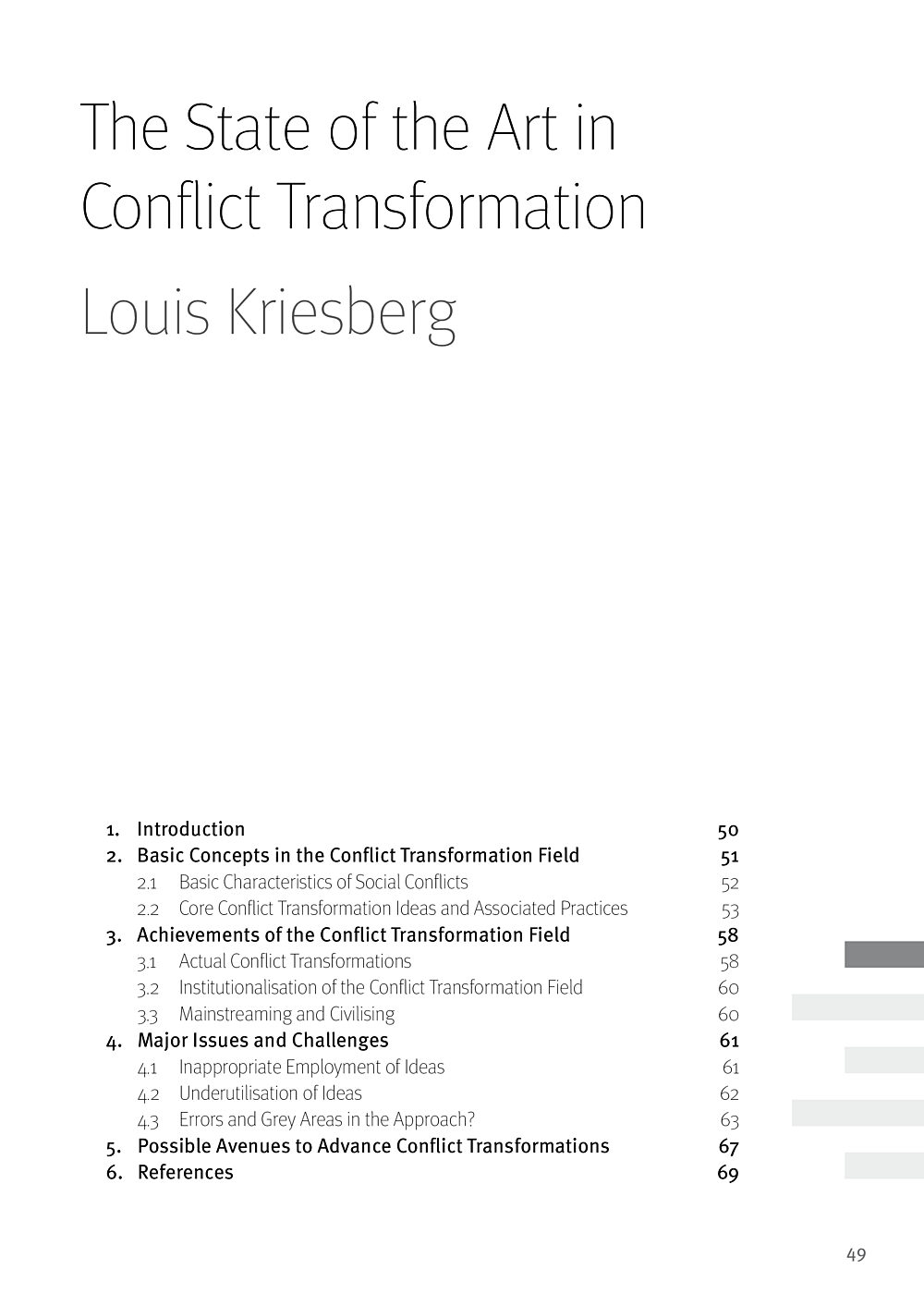
The State of the Art in Conflict TransformationHandbook Article
- Year2011
- Author(s)Louis Kriesberg
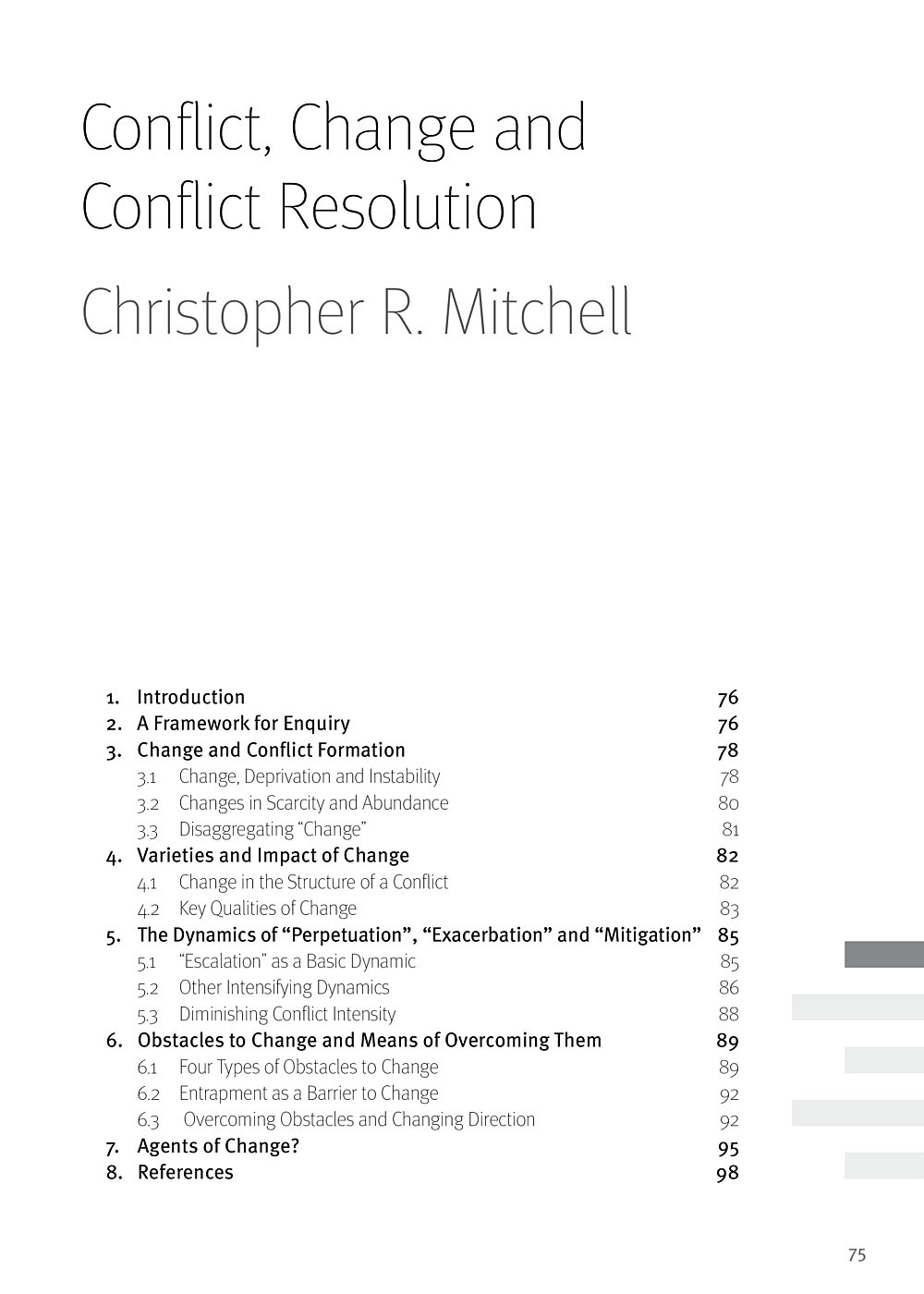
Conflict, Change and Conflict ResolutionHandbook Article
- Year2011
- Author(s)Christopher R. Mitchell
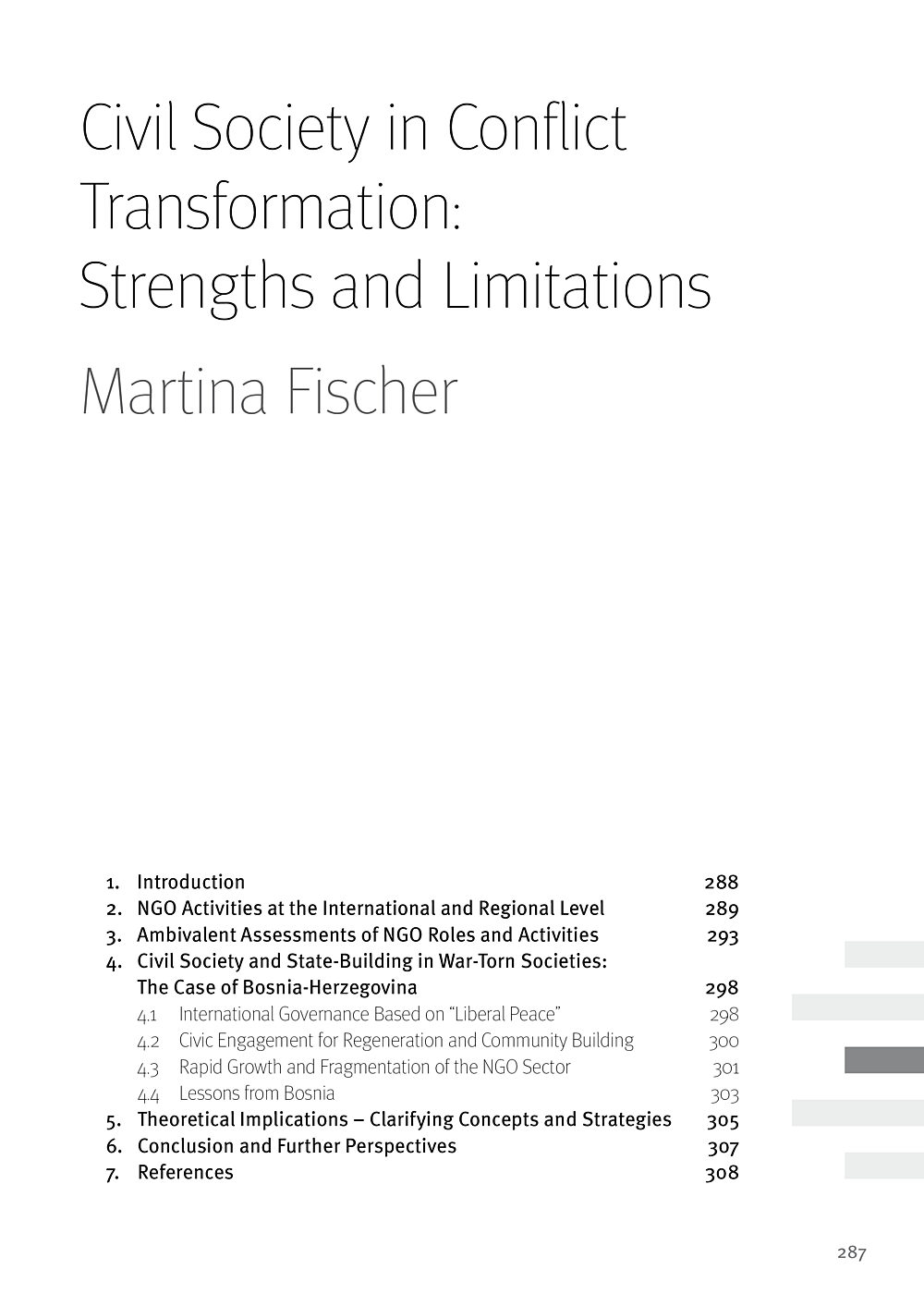
Civil Society and Conflict Transformation: Strength and LimitationsHandbook Article
Focuses on the potential contribution that civil society actors can make to peacebuilding. Central questions are: what types of activities do NGOs undertake? What problems and dilemmas are faced in the development of civil society in war-torn societies? Taking the example of Bosnia-Herzegovina, what are the limitations of civil society's contributions, and how does civil society relate to state-building? And, finally, how do these considerations impact on theoretical conceptualisations of the term "civil society"? (updated and revised for the 2011 print edition)
- Year2011
- Author(s)Martina Fischer
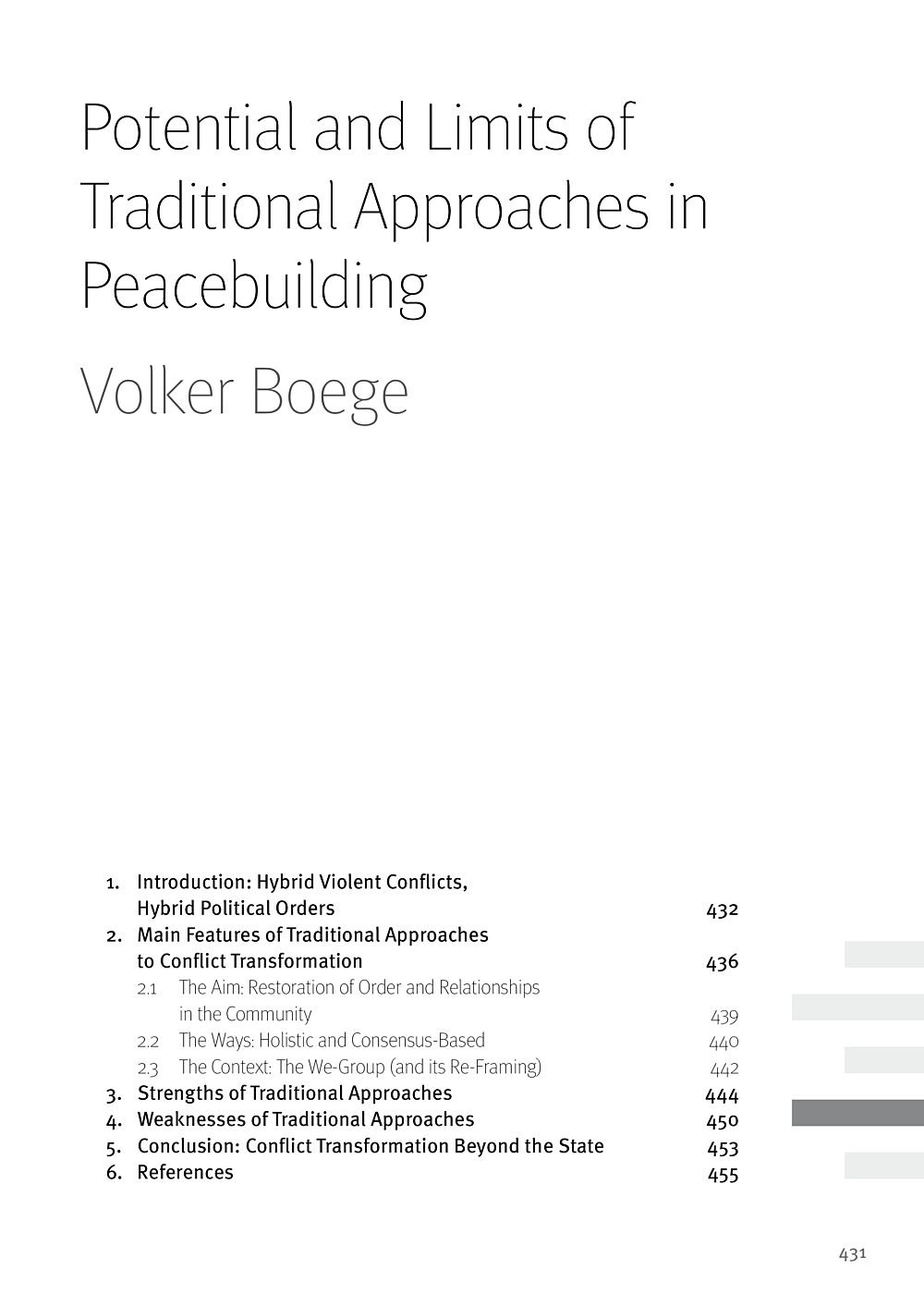
Potential and Limits of Traditional Approaches in PeacebuildingHandbook Article
- Year2011
- Author(s)Volker Boege
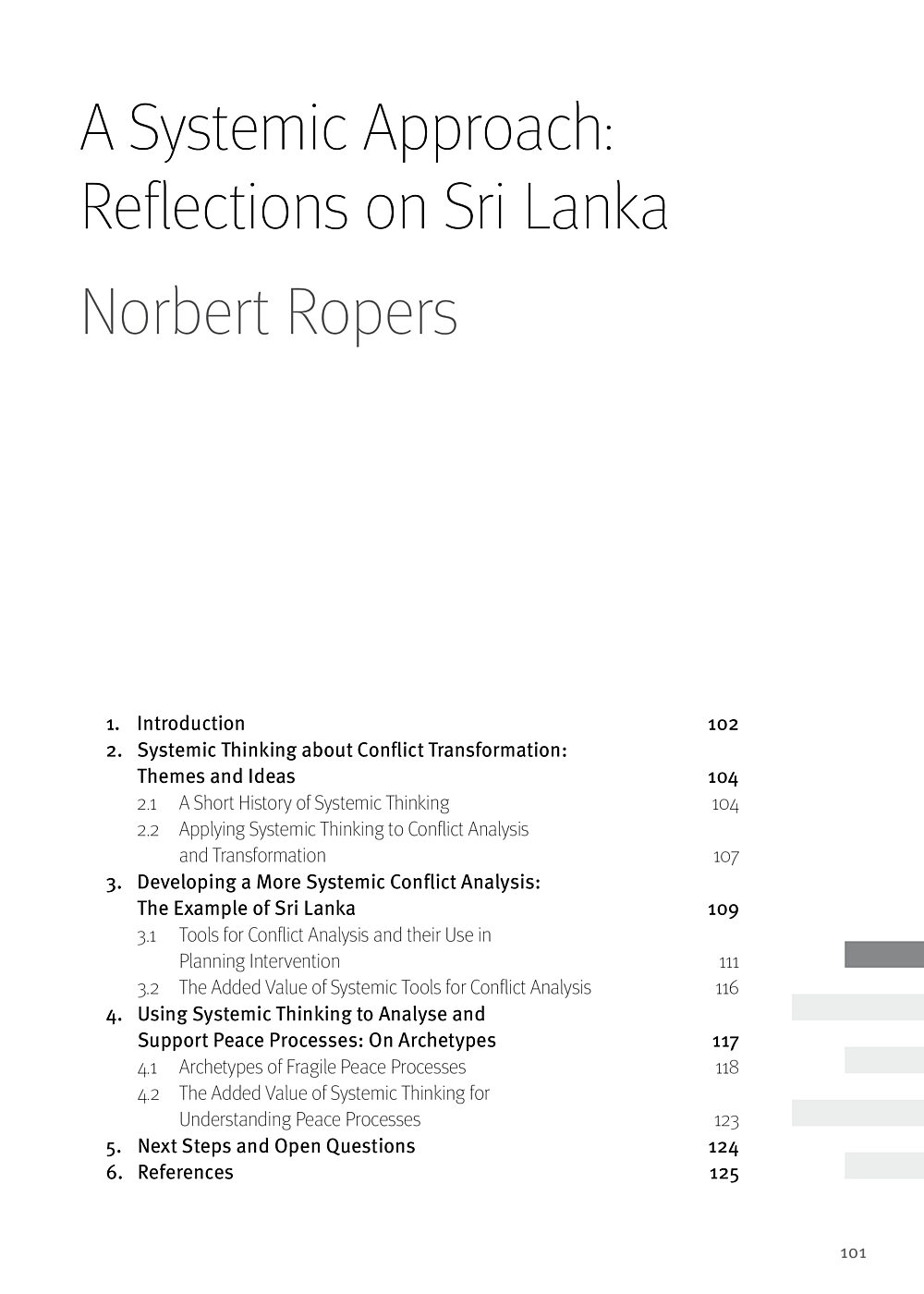
A Systemic Approach: Reflections on Sri LankaHandbook Article
Demonstrates the potential of systemic conflict transformation tools as applied to the civil war and peace process in Sri Lanka, based on dialogue and capacity building work carried out from 2001-2008. Taking on board the complexity, dynamism and non-linear development paths of protracted conflict systems, the author offers some insightful ways to help mobilise the “internal resources” inherent to a system as a means of solving problems and to re-conceptualise peace as a learning process. (updated for 2011 print edition)
- Year2011
- Author(s)Norbert Ropers
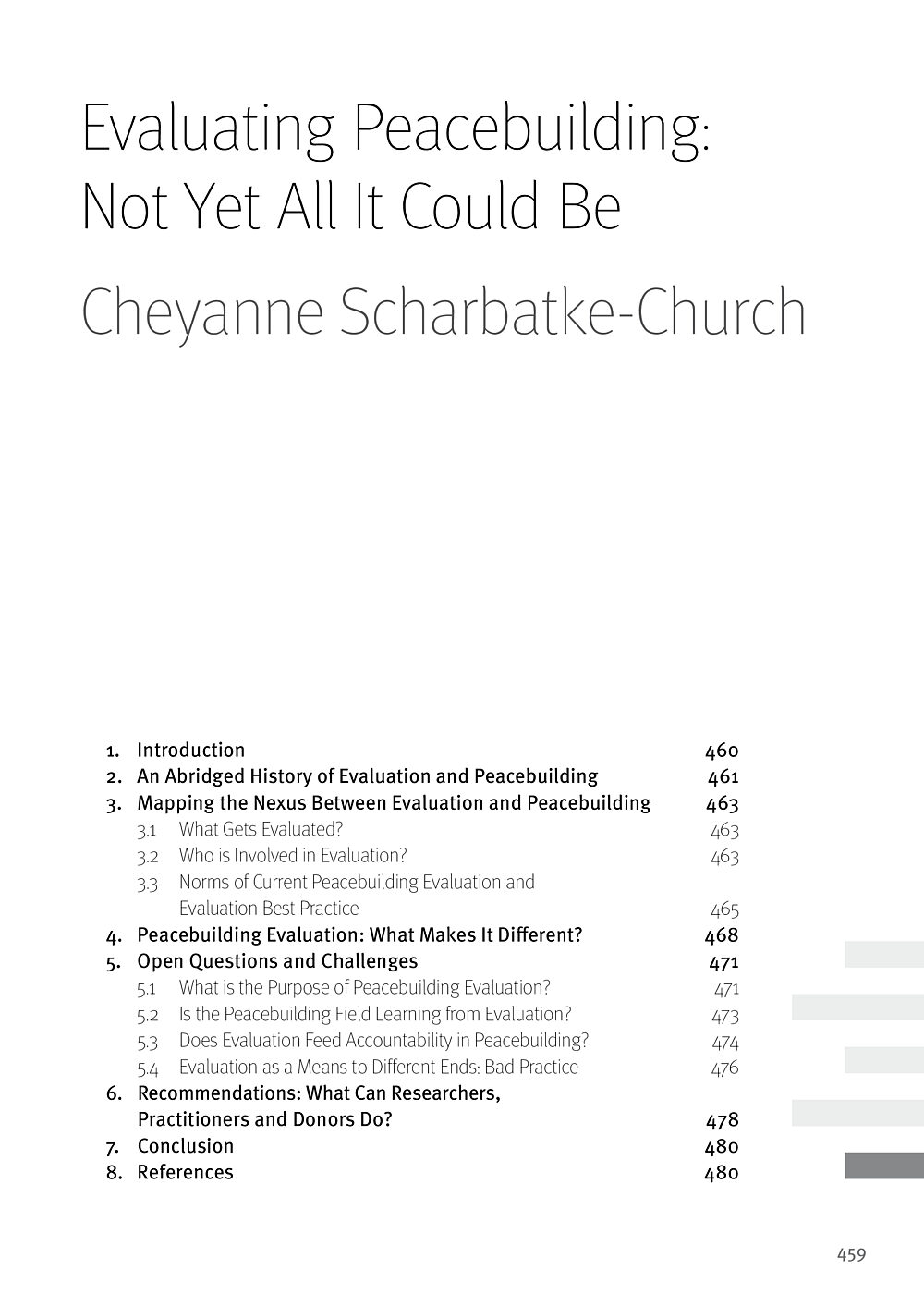
Evaluating Peacebuilding: Not Yet All It Could BeHandbook Article
- Year2011
- Author(s)Cheyanne Scharbatke-Church
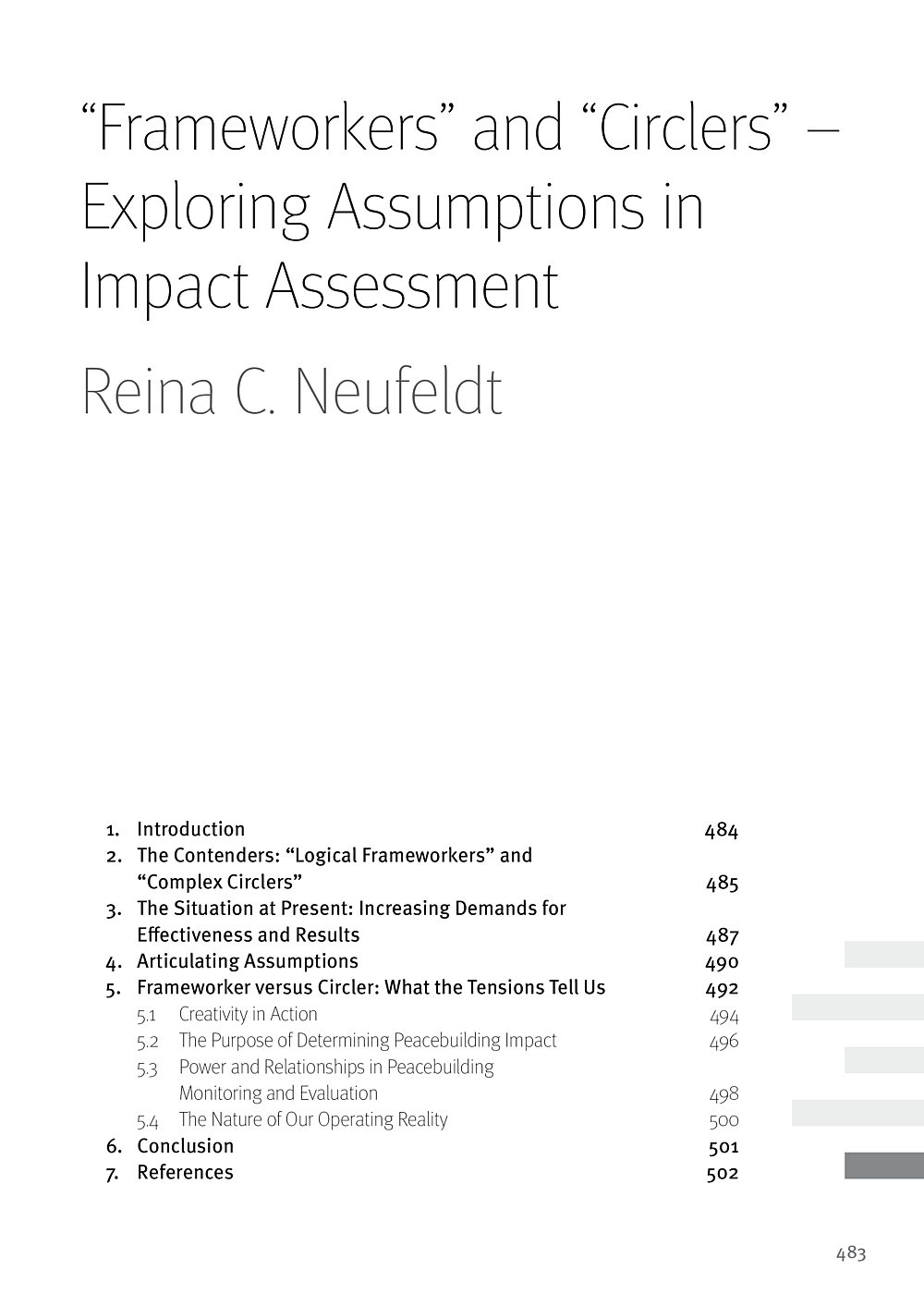
"Frameworkers" and "Circlers" – Exploring Assumptions in Impact AssessmentHandbook Article
Unpacks some of the hidden hypotheses underlying current assessment methodologies. The author argues that two (ideal type) constituencies interact – and sometimes clash – in development and peacebuilding work. She sets out to clarify their contending perspectives and illustrates ways in which both approaches can enrich each other and further the ultimate task of achieving effective impact monitoring and evaluation. (updated and revised for 2011 print edition)
- Year2011
- Author(s)Reina C. Neufeldt
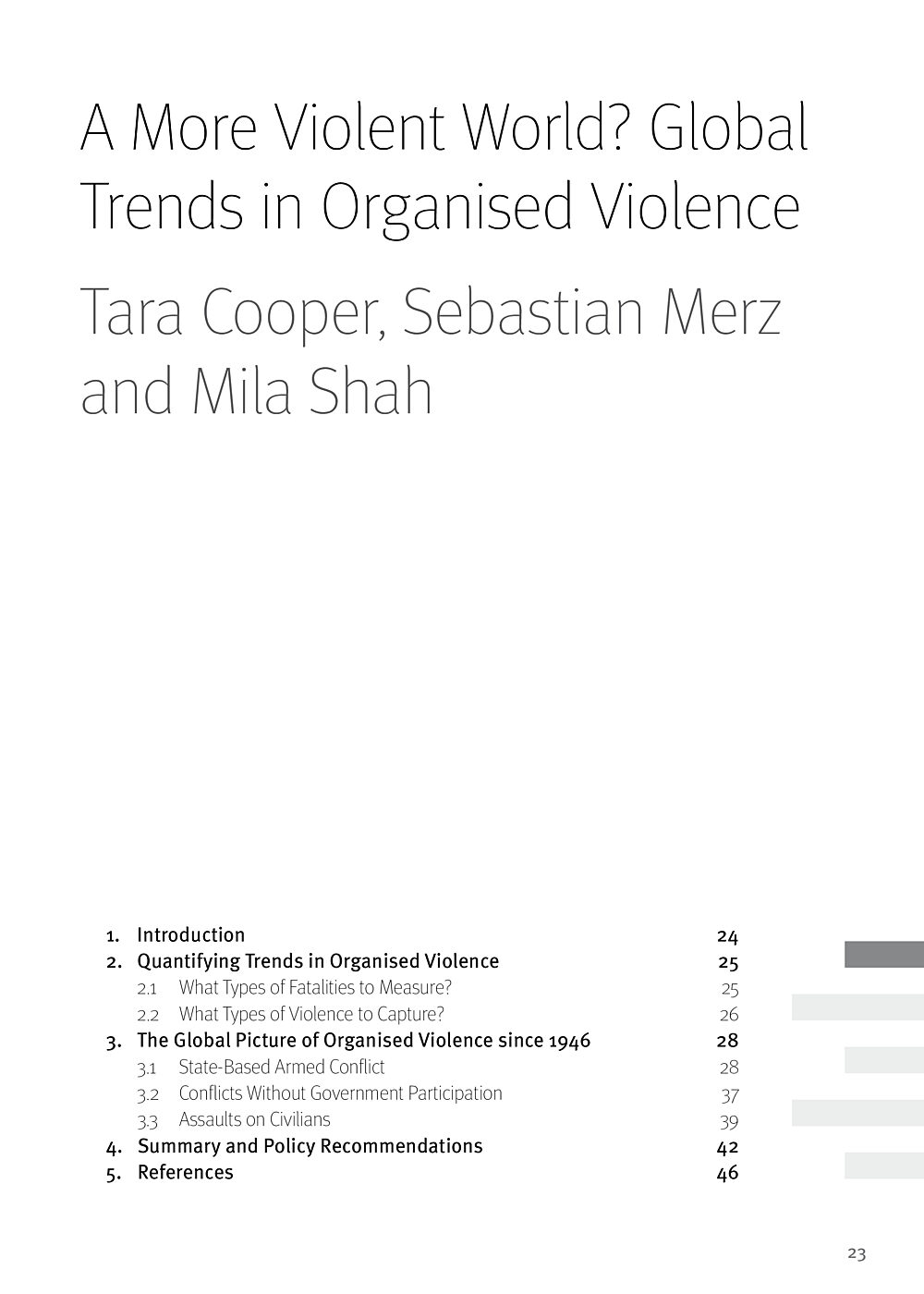
A More Violent World? Global Trends in Organised ViolenceHandbook Article
Presents robust quantitative data challenging the widespread notion that worldwide trends in violent conflict are increasing. This reflects changes in the nature of warfare, but also points to some possible successful outcomes of recent peacebuilding work. The analysis, conducted as part of the Human Security Report Project, extends beyond state-based conflicts to also cover non-state actors involved in conflict and assaults that target civilians.
- Year2011
- Author(s)Tara Cooper, Sebastian Merz, Mila Shah